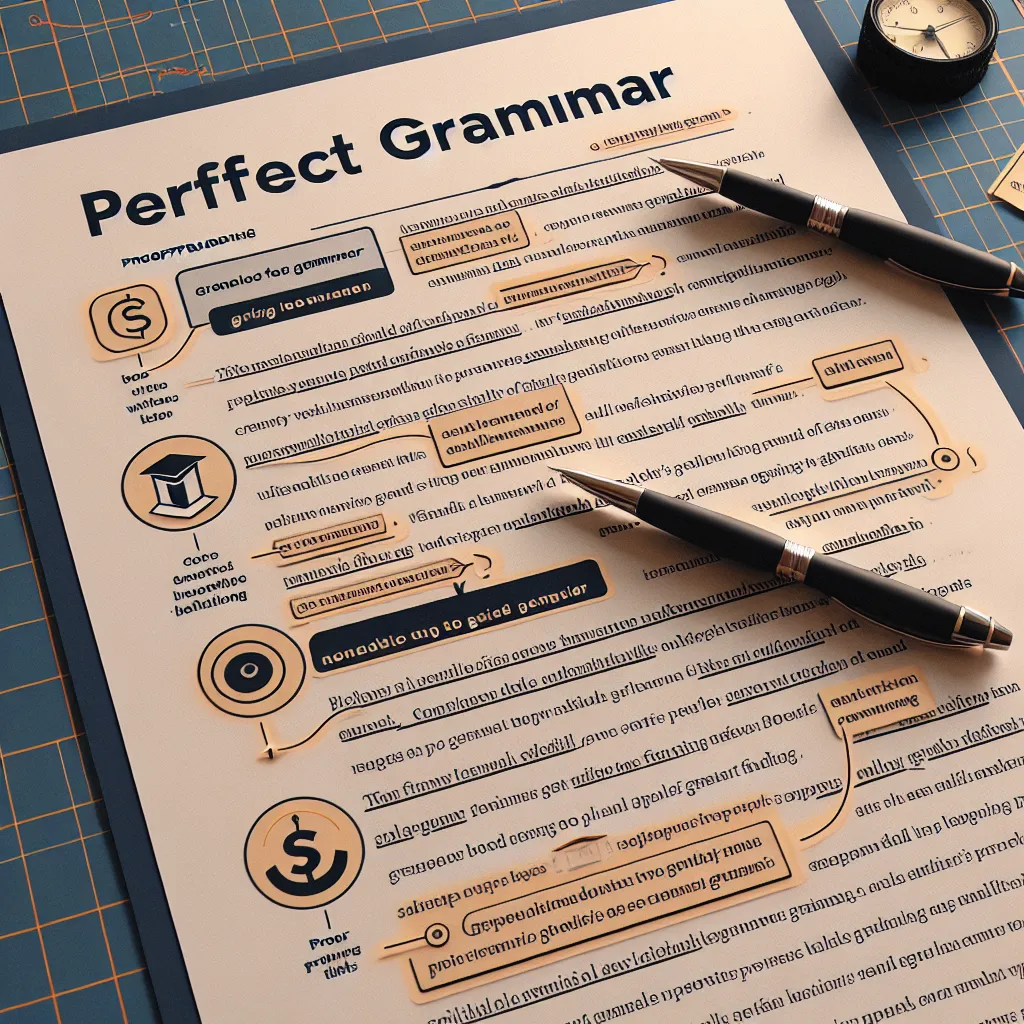Are you looking to take your English grammar skills to the next level? Mastering advanced grammar concepts is crucial for achieving fluency and expressing complex ideas with precision. In this comprehensive guide, we’ll explore effective strategies and resources to help you improve your advanced grammar comprehension. Whether you’re preparing for the IELTS exam or aiming to enhance your professional communication skills, these tips will set you on the path to grammar excellence.
Understanding the Importance of Advanced Grammar
Advanced grammar comprehension goes beyond basic sentence structures and verb tenses. It involves understanding nuanced language use, complex sentence formations, and the subtle ways in which grammar can affect meaning. Proficiency in advanced grammar is essential for:
- Articulating sophisticated ideas in academic writing
- Crafting persuasive arguments in professional settings
- Interpreting complex texts with accuracy
- Enhancing overall language fluency and naturalness
 Advanced Grammar Importance
Advanced Grammar Importance
Why Focus on Advanced Grammar?
Improving your advanced grammar comprehension can open doors to numerous opportunities:
- Higher scores on language proficiency tests like IELTS and TOEFL
- Better performance in academic environments
- Increased credibility in professional settings
- Enhanced ability to understand and appreciate literature
Now, let’s dive into the strategies that will help you refine your grammar skills.
Strategies for Mastering Advanced Grammar
1. Immerse Yourself in Authentic Materials
One of the most effective ways to improve your advanced grammar comprehension is through exposure to authentic English content. This includes:
- Academic journals and research papers
- Literary works by renowned authors
- High-quality news sources (e.g., The Economist, The New York Times)
- TED Talks and academic lectures
By regularly engaging with these materials, you’ll naturally absorb complex grammatical structures and learn how they’re used in context.
2. Analyze Sentence Structures
Develop a habit of breaking down complex sentences you encounter. Identify:
- Main and subordinate clauses
- Types of phrases (noun, verb, adjectival, adverbial)
- Linking words and their functions
This analytical approach will help you understand how advanced grammar constructs meaning in sophisticated texts. For more insights on analyzing narrative techniques to improve your English, check out our tips for improving English by analyzing narrative techniques.
3. Practice with Targeted Exercises
Focus on specific advanced grammar topics and practice them intensively. Some key areas to work on include:
- Conditional sentences (all types)
- Subjunctive mood
- Inversion
- Cleft sentences
- Relative clauses (defining and non-defining)
 Targeted Grammar Exercises
Targeted Grammar Exercises
For each topic, complete a variety of exercises, from gap-filling to sentence transformation. Websites like English Page and Perfect English Grammar offer excellent resources for this purpose.
4. Utilize Grammar Reference Books
Invest in comprehensive grammar reference books that cover advanced topics in depth. Some recommended titles include:
- “Advanced Grammar in Use” by Martin Hewings
- “Practical English Usage” by Michael Swan
- “The Cambridge Grammar of the English Language” by Rodney Huddleston and Geoffrey K. Pullum
These books provide detailed explanations and examples of complex grammatical structures, serving as invaluable resources for self-study.
5. Engage in Writing and Editing Practice
Regular writing practice is crucial for internalizing advanced grammar concepts. Try these activities:
- Keep a journal using sophisticated language structures
- Write academic-style essays on various topics
- Compose formal emails or reports
After writing, thoroughly edit your work, paying close attention to grammar usage. You can also use tools like Grammarly for initial feedback, but don’t rely on them entirely.
For specific tips on using advanced grammar in technical writing, visit our guide on advanced grammar for technical proposals.
6. Seek Feedback from Native Speakers or Experts
While self-study is valuable, receiving feedback from proficient English speakers can significantly accelerate your progress. Consider:
- Joining language exchange platforms
- Participating in English writing workshops
- Hiring a tutor specializing in advanced grammar
Their insights can help you identify subtle errors and nuances that you might overlook on your own.
Advanced Grammar in Context: Examples and Analysis
Let’s examine some examples of advanced grammar in use:
-
Inversion:
“Not only did she excel in her studies, but she also managed to run a successful business.”Analysis: The inversion “Not only did she” adds emphasis and creates a more sophisticated sentence structure.
-
Cleft Sentence:
“It was her dedication to practice that ultimately led to her success.”Analysis: This structure emphasizes “her dedication to practice” by making it the focus of the sentence.
-
Mixed Conditional:
“If I had studied harder in school, I would be in a better position now.”Analysis: This sentence combines a past condition with a present result, demonstrating a complex use of tenses.
For more examples and tips on advanced pronoun usage, which is a crucial aspect of advanced grammar, check out our advanced pronoun usage tips.
Common Pitfalls to Avoid
When working on advanced grammar, be aware of these common mistakes:
- Overcomplicating sentences: Sometimes, simpler is better. Don’t use complex structures just for the sake of it.
- Misusing the subjunctive: Pay attention to when and how to use phrases like “If I were” correctly.
- Confusing similar structures: For example, distinguishing between “whom” and “who” in complex sentences.
- Inconsistent tense use: Ensure your tenses align logically, especially in complex narrative or conditional sentences.
Next Steps for Continuous Improvement
To continue enhancing your advanced grammar skills:
- Set specific grammar goals each week (e.g., mastering reported speech)
- Create a study schedule that includes regular grammar practice
- Join online forums or study groups focused on advanced English grammar
- Take practice tests to assess your progress and identify areas for improvement
For those preparing for international communication, our guide on advanced grammar for international communication offers additional insights.
 Continuous Improvement in Grammar
Continuous Improvement in Grammar
Conclusion
Improving your advanced grammar comprehension is a journey that requires dedication, practice, and exposure to high-quality language input. By implementing the strategies outlined in this guide, you’ll be well on your way to mastering complex grammatical structures and expressing yourself with greater precision and sophistication in English.
Remember, consistent practice is key. Incorporate these techniques into your daily language learning routine, and you’ll see significant improvements in your grammar skills over time. Don’t forget to make the learning process enjoyable – consider incorporating grammar practice through games to keep your motivation high.
We’d love to hear about your experiences with Improving Advanced Grammar Comprehension. Share your tips, challenges, or questions in the comments below!




